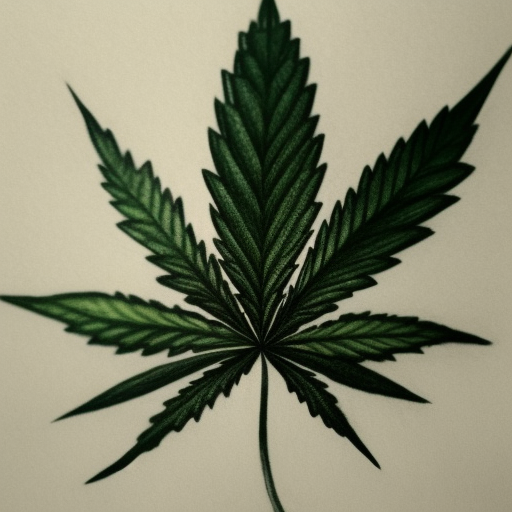
Cannabidiol (CBD) has been a hot topic in the medical community in recent years due to its potential therapeutic benefits in various disorders, including epilepsy. CBD is a non-intoxicating compound derived from the cannabis plant, and it has been shown to have anticonvulsant properties that may reduce the frequency and severity of seizures. This article will review various studies and reports on CBD and its use in treating epilepsy.
The World Health Organization (WHO) released a critical review report of CBD in 2018, which concluded that CBD is generally well-tolerated with a good safety profile. The report stated that CBD does not have psychoactive effects and is not associated with abuse potential or dependence. The report also highlighted the potential therapeutic benefits of CBD, including its use in treating epilepsy. However, the report acknowledged that more research is needed to fully understand the therapeutic effects of CBD.
In 2014, Devinsky et al. published a comprehensive review article on the pharmacology and potential therapeutic role of CBD in epilepsy and other neuropsychiatric disorders. The authors concluded that CBD has anticonvulsant properties and may be effective in reducing seizure frequency in patients with various types of epilepsy, including Dravet syndrome and Lennox-Gastaut syndrome (LGS). They also noted that more clinical trials are needed to establish the optimal dosing and safety profile of CBD.
To further investigate the potential therapeutic benefits of CBD in epilepsy, Devinsky et al. conducted an open-label interventional trial in 2016 with patients who had treatment-resistant epilepsy. The study found that CBD significantly reduced seizure frequency by 36.5% compared to baseline. The authors concluded that CBD may be a safe and effective treatment option for patients with treatment-resistant epilepsy.
In 2020, Elliott et al. published an updated systematic review on cannabis-based products for pediatric epilepsy. The authors reviewed six randomized controlled trials (RCTs) and six observational studies that evaluated the use of cannabis-based products, including CBD, in pediatric patients with epilepsy. The review found that cannabis-based products were associated with a reduction in seizure frequency in some patients, but the evidence was limited due to the small sample sizes and methodological limitations of the studies.
The United States Food and Drug Administration (FDA) has also been involved in the evaluation of CBD for epilepsy treatment. In 2018, the FDA approved Epidiolex, a purified form of CBD, for the treatment of seizures associated with Lennox-Gastaut syndrome and Dravet syndrome in patients two years of age and older. The approval was based on clinical trials that demonstrated the efficacy and safety of Epidiolex in reducing seizure frequency in patients with these syndromes.
Epidiolex is available by prescription only and is considered a Schedule V controlled substance under the Controlled Substances Act. According to the package insert, common adverse effects of Epidiolex include somnolence, decreased appetite, diarrhea, elevated liver enzymes, fatigue, malaise, and infections. Patients should be monitored for signs of liver injury while taking Epidiolex.
It is important to note that epilepsy is a complex neurological disorder that encompasses various types and syndromes. According to the Epilepsy Foundation, there are over 30 different types of epilepsy syndromes, each with its own unique set of characteristics and seizure types. CBD may be effective in treating some types of epilepsy, but not all patients may respond to CBD therapy.
In addition to its potential therapeutic benefits, CBD has also been shown to have various modes of administration. Schauer et al. conducted a survey in 2016 that found smoking was still the most common mode of marijuana use among adults in 12 states surveyed. However, vaping, eating, and dabbing were also identified as common modes of use.
In conclusion, CBD has shown promise as a potential treatment option for epilepsy, particularly in patients with treatment-resistant epilepsy. However, more research is needed to fully understand the therapeutic effects of CBD, its safety profile, and optimal dosing. The FDA has approved Epidiolex for the treatment of seizures associated with LGS and Dravet syndrome, but patients should be monitored for potential adverse effects. As with any medical treatment, patients should consult with their healthcare provider before starting or changing their treatment regimen.

